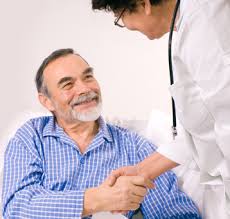Taking the Step: Opiate Detox and Recovery
No one knows better than the addict how distressing a full-blown opiate addiction can be. The emotional ups and downs, failing health and lost relationships can only go on for so long before a person has to acknowledge the destruction that opiate addiction brings.
While not all addicts have the courage to put a stop to the madness, those who take the first step towards getting well have the best chance of turning things around. Opiate detox and recovery can be a difficult transition, though someone who’s reached this point well knows the costs involved with doing nothing at all.
Opiate detox and recovery walks the addict through the steps needed to break the hold of opiates on the body and mind. In the process, opiate detox and recovery helps addicts develop the type of mindset and perspective needed to maintain abstinence and rebuild their lives.
Opiate Addictions

Detox treatment can get you started on the road to recovery.
Opiate addiction rates have skyrocketed over the past decade, with as many as 1.9 million Americans addicted to prescription opiate drugs in 2010, according to the National Institute on Drug Abuse. Likewise, heroin, an illicit opiate drug, saw as many as 359,000 people addicted to the drug.
Opiate addictions alter brain functions in such a way as to trap users inside a vicious cycle of drug abuse and withdrawal. Opiate detox and recovery addresses the effects of addiction in stages, offering addicts proven strategies for overcoming the drug’s addictive effects.
Detox Treatment
Detox treatment marks the start of the recovery process. According to the Substance Abuse & Mental Health Services Administration, detox treatment entails a three-stage process made up of the following components:
- Evaluating a person’s overall condition
- Stabilizing drug withdrawal effects
- Preparing a person for entry into the next stage of the treatment process
As everyone’s recovery path unfolds in its own way, opiate detox and recovery programs assess and reassess a person’s status and progress through each stage of treatment. In this way, providers can administer the types of interventions that best address a person’s treatment needs.
Medication Treatment
The damaging effects of opiates leave the brain and body in a deteriorated state, which can greatly impair a person’s ability to follow through on treatment goals. For this reason, opiate detox and recovery programs use medication treatments as a way to support damaged brain and body functions.
Medications, such as methadone and buprenorphine can be used for opiate detox and recovery on a long-term basis. These drugs provide needed relief from the drug cravings and withdrawal effects that often persist for months, and sometimes years into the recovery process.
Psychosocial Needs
While opiate addiction does take a considerable toll on the body’s ability to function normally, it also warps a person’s belief systems and overall motivations in everyday life. Opiate detox and recovery programs place a heavy emphasis on helping recovering addicts develop the type of mindset needed to live a drug-free lifestyle.
According to the U. S. National Library of Medicine, interventions used to address a person’s psychosocial treatment needs include:
- Psychotherapy
- 12-Step support programs
- Relapse prevention strategies
- Drug education training
Addiction affects the mind and body in much the same way as any disease type condition. While taking the necessary steps to get well does require work, finally breaking the hold of drugs on your life makes it well worth the effort.
 How Do I Know If I Need Opium Detox Treatment? -
Ask yourself the following questions to determine whether or not you require opium detox treatment.
How Do I Know If I Need Opium Detox Treatment? -
Ask yourself the following questions to determine whether or not you require opium detox treatment.  Can’t I Just Quit on My Own? And Other Common Questions Preventing You from Seeking Treatment for Opiate Addiction -
Once you know what to expect, opiate addiction treatment won't seem so scary or difficult.
Can’t I Just Quit on My Own? And Other Common Questions Preventing You from Seeking Treatment for Opiate Addiction -
Once you know what to expect, opiate addiction treatment won't seem so scary or difficult.  Pros and Cons of Outpatient Opiate Addiction Treatment -
While in outpatient treatment patients live at home where they can receive support from friends and family. This also, however, leaves a lot of room for temptation.
Pros and Cons of Outpatient Opiate Addiction Treatment -
While in outpatient treatment patients live at home where they can receive support from friends and family. This also, however, leaves a lot of room for temptation.  Will Methadone Treatment Still Work If I’ve Relapsed in the Past? -
Relapse is extremely common among recovering opiate addicts, and using methadone alone is often not enough to prevent it.
Will Methadone Treatment Still Work If I’ve Relapsed in the Past? -
Relapse is extremely common among recovering opiate addicts, and using methadone alone is often not enough to prevent it.  Treatment for Prescription Drug Abuse -
While there are a range of different prescription drugs, the treatment for prescription drug abuse is typically counseling and behavioral therapy. With certain drugs medication is also used.
Treatment for Prescription Drug Abuse -
While there are a range of different prescription drugs, the treatment for prescription drug abuse is typically counseling and behavioral therapy. With certain drugs medication is also used.